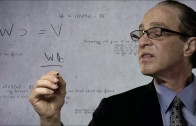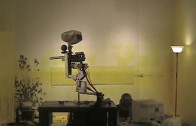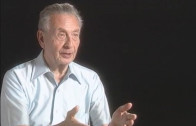Transcendent Man
Ray Kurzweil, noted inventor and futurist, is a man who refuses to accept physical reality and the inevitability of death. Instead, he claims that the trending exponential increase in the growth of information technology can continue indefinitely, and that a so-called “singularity” will emerage—a point where humans and machines will converge, allowing one to “transcend” biological “limitations.” Kurzweil also claims advances in genetics will also provide tools to “reprogram” biology, “eliminate disease” and “stop the aging process”; that nanotechnology will keep humans “healthy” from the inside using robotic blood cells; and that a computer interface within the brain will make direct “superhuman intelligence” possible, including the ability to “backup” a human mind inside a computer.
But there are many who share deep concerns about the consequences of working towards Kurzweil’s world. Physician William B. Hurlbut warns of tragedy and views Kurzweil’s claims as lacking a more “moderate approach” necessitated by biological science. AI engineer Ben Goertzel champions the transhumanist vision, but acknowledges the possibility of a completely dystopian outcome. AI researcher Hugo de Garis warns of a coming war in which he claims “god-like” artificial intellects, and those who want to build them, will fight against those who don’t. But yet, he continues to build them anyway. Kevin Warwick, professor of Cybernetics at University of Reading, advocates what he sees as benefits of the singularity, but suggests a “Terminator type-scenario” may also occur. And yet, he continues to build too. What is going on with these people, this field of study, this view of the world, this complete unacceptance of life and physical reality?




